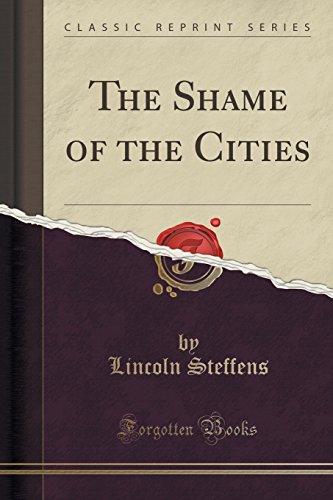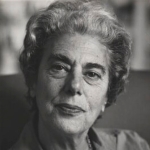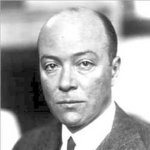Background
Joseph Lincoln Steffens was born on April 6, 1866, in San Francisco, California, United States. He was the son of Joseph Steffens, a banker, and Elizabeth Louisa (Symes) Steffens. Steffens mostly grew up in Sacramento, the state capital.

1922
Ernest Hemingway with Lincoln Steffens in Lausanne, Switzerland
Lincoln Steffens
University of California, Berkeley, CA, United States
In 1889, Steffens received a Bachelor of Philosophy from the University of California in Berkeley.
16 Baldwin Ave, San Mateo, CA 94401, United States
Steffens attended the Saint Matthew's Episcopal Day School.
69117 Heidelberg, Germany
Steffens studied at Heidelberg University.
Augustusplatz 10, 04109 Leipzig, Germany
Steffens studied at Leipzig University.
15-21 Rue de l'École de Médecine, 75006 Paris, France
From 1889 - 1892, Steffens studied at Sorbonne University.
Lincoln Steffens
Lincoln Steffens
Lincoln Steffens














(Renowned muckraker and investigative reporter Lincoln Ste...)
Renowned muckraker and investigative reporter Lincoln Steffens recounts a series of historic corruption scandals in cities of the United States. The various backhanders and embezzlements occurring in the urban councils of the USA in the late 19th century are recalled here.
http://www.amazon.com/gp/product/1331920663/?tag=2022091-20
1904
Joseph Lincoln Steffens was born on April 6, 1866, in San Francisco, California, United States. He was the son of Joseph Steffens, a banker, and Elizabeth Louisa (Symes) Steffens. Steffens mostly grew up in Sacramento, the state capital.
Steffens attended the Saint Matthew's Episcopal Day School. In 1889, he received a Bachelor of Philosophy from the University of California in Berkeley. He also studied at Heidelberg University and Leipzig University. From 1889 - 1892, he also studied at Sorbonne University.
Upon returning to the United States in 1892, Steffens began working in the newspaper industry in New York City. In 1902, he became editor of McClure's Magazine. At McClure's magazine, Steffens collaborated with Ida Tarbell, and Ray Stannard Baker. He specialized in investigating government and political corruption. Two collections of his articles were published as The Shame of the Cities in 1904, and The Struggle for Self-Government in 1906. He also wrote The Traitor State, which criticized New Jersey for patronizing incorporation. In 1906, Steffens left McClure's to form American Magazine.
Steffens continued in journalism until approximately 1910 when he became interested in the revolution in Mexico. In January 1919, Steffens and his friend, William Christian Bullitt, assistant secretary of state, argued that they should be sent to Russia to open up negotiations with Lenin and the Bolsheviks. Permission was granted by the Secretary of State Robert Lansing on 18th February. Steffens and Bullitt had a meeting with Lenin in Petrograd on 14th March. The decline of muckraking journalism in 1910 coincided with Steffens’s growing doubts as to its effectiveness. He increasingly doubted the effectiveness of reform politics, which seemed to seek to eradicate the symptoms of corruption rather than its causes. By this stage of his career, Steffens had great difficulty finding magazines willing to publish his work. His unorthodoxy lost him to his American audience during the 1920s.
In the 1920s, Joseph moved to Europe and began working on his autobiography, which was highly successful upon its publication in 1931. In 1935 Steffens gave his name in support of the American Writers’ Congress to be held in New York City. Its main objective was to give support to those fighting Adolf Hitler and Benito Mussolini in Europe.
Journalist Lincoln Steffens was a leading writer and pioneer among the muckraking movement of the early 20th century. Steffens discovered abundant evidence of the corruption of politicians by businessmen seeking special privileges. He raised questions, jolting his audience into awareness of the ethical paradox of private interest in public affairs by comic irony rather than by moral indignation. He revealed the shortcomings of the popular dogmas that connected economic success with moral worth and national progress with individual self-interest.
Steffen's contributions to journalism remain relevant even today, decades after his death. His name, philosophy, and journalistic approach are invoked regularly by writers who take issue with those who govern.
(Renowned muckraker and investigative reporter Lincoln Ste...)
1904Though Steffens never joined the Communist Party, he believed only a Communist-style revolution could rescue America economically.
Lincoln Steffens dedicated himself to awakening his readers to corruption within institutions most Americans took for granted. Steffens became disillusioned with advocacy journalism and took interest in political left-wing revolutions, traveling to Russia and writing against capitalism while the American economy was weak. His autobiography chronicles his evolution from a frivolous youth to a crusading journalist to a champion of revolutionary ideas. Steffens cited patterns, not just examples, of corruption and demonstrated how business people who seem the most trustworthy are often the most corrupt. Exposing corruption was not enough for Steffens; he also proposed solutions and instituted reform measures. He urged readers to take responsibility for cleaning up their governments. He saw capitalism as the root of social corruption and felt the Bolshevik Revolution validated his opinion.
Steffens also covered immigrant life, examining how children acclimated to America more easily than did their elders.
Quotations: "I have been contending with all my kind, always against God. The world which I tried so hard, so honestly, so dumbly, to change has changed me. And as for the world in general, all that was or is or ever will be wrong with that is my - our - thinking about it."
Steffens established himself as an adept interviewer who could elicit information from even the most slippery contact. His witty style also won over readers.
Quotes from others about the person
"Lincoln Steffens was attracted to younger men and greatly enjoyed the influence he could exercise over them. As a topflight journalist, he was always being made an editor of some magazine or daily, yet he hated a desk and four walls and – was no editor at all – except for his uncanny ability to think up assignments for himself and his love of scouting for young writers. He had gone to Harvard to ask Copeland for the names of some promising young men." - Bertram D. Wolfe
In 1891, Steffens married Josephine Bontecou, but she died in 1911. In 1924, he married the twenty-six-year-old socialist writer Leonore (Ella) Sophie Winter. Later they divorced, claiming their relationship meant more without legal ties but remained together until Steffens’ death. They had a son, Pete Stanley. Winter worked outside the home while her husband essentially took care of the boy.

(1898 - 5 August 1980)
Leonore (Ella) Sophie Winter Steffens Stewart was an Australian-British journalist and activist.

(January 25, 1891 – February 15, 1967)
William Christian Bullitt Jr. was an American diplomat, journalist, and novelist. He is known for his special mission to negotiate with Lenin on behalf of the Paris Peace Conference, often recalled as a missed opportunity to normalize relations with the Bolsheviks.
